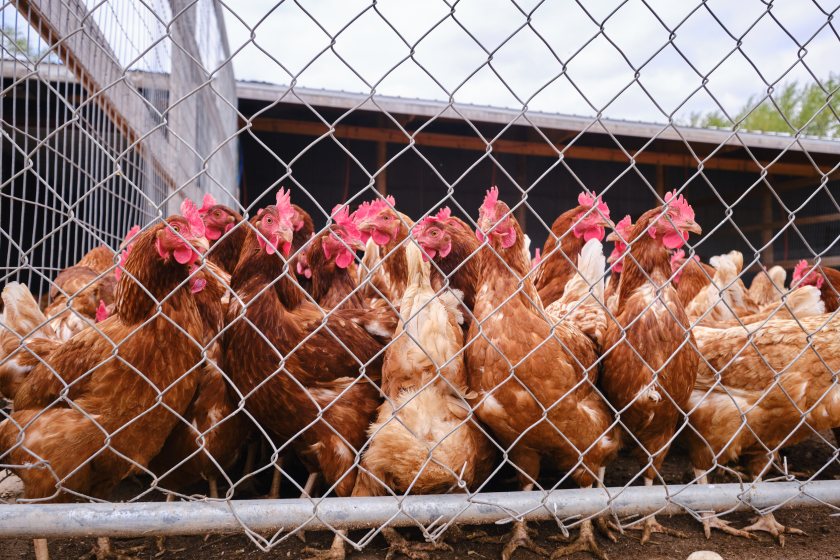Experts warn of 'super-infectious' bird flu as farmers told to prepare

The strain of bird flu sweeping across UK poultry farms could be the most contagious yet, according to one of the country’s leading virologists, who has warned farmers to brace for severe disruption.
Professor Ian Brown, a specialist in avian diseases at the Pirbright Institute, told BBC News that the virus currently circulating among farm flocks is “as super-infectious as any high pathogenicity avian influenza we've ever seen.”
He urged poultry keepers to “prepare for the worst,” warning that the industry must “batten the hatches down, review their biosecurity and redouble their efforts” to contain the disease.
The government has brought in a mandatory housing order across England, forcing all poultry and captive birds to be kept indoors to reduce the risk of infection from wild birds. Northern Ireland also has a housing order.
Government officials said the move should “bring the rates of infection down from the high we are currently experiencing.”
Twenty-eight cases of highly pathogenic avian influenza (HPAI) H5N1 have been confirmed on UK farms since October, with the vast majority recorded in England alone. Each outbreak results in the full culling of affected flocks.
Professor Brown said that while it was too early to predict the eventual scale of the crisis, “the early signals are not great.” Between 2021 and 2023, he noted, the UK suffered more than 350 outbreaks — “off the scale” by previous standards.
The UK Health Security Agency maintains that the risk to public health remains “very low,” while the Food Standards Agency has reassured consumers that properly cooked poultry and eggs are safe to eat.
However, Professor Brown told the BBC that the virus must be closely tracked for any signs of mutation. “The good news is, basically, these viruses are still bird viruses.
"They don't want to be in a human,” he said. “But influenza viruses change. They make mistakes and errors when they replicate — that could always spew out a variant that might be more infectious for humans.”
Chief Veterinary Officer Christine Middlemiss urged bird keepers to observe “robust biosecurity measures” and report any suspected infections immediately.
“We know from previous years that housing birds will bring the rates of infection down,” she said, thanking farmers for their cooperation.
Industry leaders also backed the move, with British Poultry Council chief executive Richard Griffiths calling the housing order “the right move at the right time,” while Gary Ford of the British Free Range Egg Producers Association said it provided “the clarity and consistency that producers have been calling for.”








